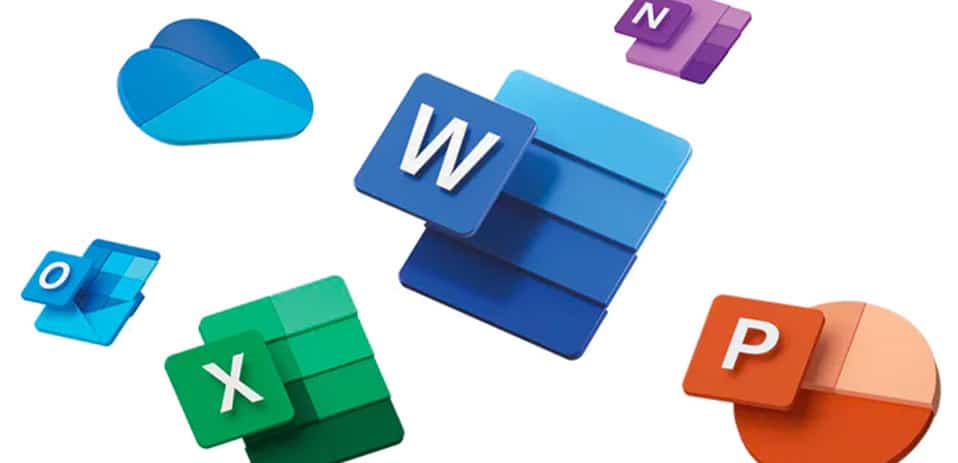G-Suite is Google’s new cloud-based collection of business applications. Should you make the switch from Office 365 Business?
It’s no secret that I’m obsessed with Microsoft’s Office 365 Business. However, after hearing about the recent updates to Google’s G Suite, (formerly Google Apps for Work) I had to take a closer look. After all, I owe it to my clients to find out if there’s something better out there.
What is Office 365 Business?
Office 365 Business is a collection of cloud-based applications for easy for companies to easily create, collaborate and keep their business running smoothly. Office 365 Business comes in three different versions: Regular, Premium and Essentials. The annual subscription costs from $5 to $12.50 per user, per month.
Each version of Office 365 Business offers a selection of popular applications. For this comparison, I decided to look at the most complete version, the Office 365 Business Premium (which costs $12.50 monthly per user with a yearly commitment, or $15 per month without a contract).
What is G Suite?
G Suite is the rebranding of the Google Apps for Work suite of applications, and is very similar in concept to Office 365 Business. Most of the apps included are new versions of the company’s old favorites. Like Office 365 Business, there’s more than one version of G Suite you can choose from. G Suite comes in Basic and Business, which costs subscribers either $5 or $10 per month, per user, respectively. There’s also an Enterprise version, however, the price isn’t available on Google’s website.
Unlike Office 365 Business, all of G Suite’s plans offer access to every major application. The difference is that the Business version offers more storage and better search functions. For this comparison, I will use the G Suite Business plan which costs $10 per month per user, per month, and doesn’t include a discount for an annual plan.
Comparison Results
Apps for Creating
- Office 365 Business Premium offers extremely well-known and popular web versions of their business application which many workers have experience using. This familiarity saves time for your employees to learn, and lets new hires be productive from the first day on the job. The package includes:
- Word for documents.
- Excel for spreadsheets.
- PowerPoint for presentations.
- OneNote for storing information.
- Publisher (PC only) for layout design.
- Access (PC only) for databases
Although G Suite provides subscribers popular apps that were previously available from Google, many employees have never used them before. This means more training time. The applications G Suite provides for creating include:
- Docs for documents.
- Sheets for spreadsheets.
- Slides for presentations.
- Keep for storing information.
- Forms for creating interactive surveys and forms.
- Sites for building simple websites
While both Office 365 Business Premium and G Suite offer apps to help users accomplish similar tasks, the Office 365 Business Premium apps feel much more established and better thought out. Word can handle longer and more complex documents than Docs, and Sheets doesn’t even come close to the robustness of Excel. PowerPoint makes it much easier than G Suite’s Slide to both create a presentation and present it. Keep feels like a light version of OneNote, however, some users may prefer its overall simplicity.
Each service also offers unique apps.
- Office 365 Business Premium gives PC users Access and Publisher.
Access is a decent database creation and management tool. Publisher is a simplified desktop-publishing application that lacks the power of many other commercial desktop publishing programs. However, it’s acceptable for laying out in-house documents.
- G Suite’s Forms allows you to create interactive forms and surveys and send them via email, or upload to a website. It also provides the tools required to analyze the results. While not as powerful as similar stand-alone software, it is a nice app. Sites is a website-creation tool that appears as an out-of-date afterthought.
Apps for Collaboration
Office 365 Business Premium is great for helping employees work better and faster with collaborative apps. A subscription includes:
- Outlook for emails.
- Skype For Business for text, voice, video chatting and meetings.
- Microsoft Teams for group chats.
- Yammer for helping groups work smarter.
G Suite has its own software solution for collaboration that includes:
- Gmail for emails.
- Hangout Meets for video, voice chatting and meetings.
- Google+ for helping teams work smarter.
- Jamboard an interactive whiteboard.
When it comes to email services, both G Suite and Outlook provide comprehensive solutions that are well matched.
- Power users will appreciate G Suite’s unlimited email storage limit, but Outlook provides a more than adequate 50 GB of storage per account.
- Skype For Business is vastly better than Hangout Meets since it allows 250 people to join a meeting. That’s ten times the number allowed in Hangout Meets. In addition, most users find the video and voice quality better with Skype.
- Many people are confused about the differences between Yammer and Microsoft Teams. Both serve similar functions to facilitate collaboration, but they do so in different ways. Microsoft Teams is similar to Slack, while Yammer is more like a traditional BBS. No matter which you prefer, both are better than Google+.
- Jamboard is basically an interactive whiteboard that some may find useful.
Apps for Keeping Things Organized
- Microsoft’s OneDrive is a popular file-sharing and storage platform. Office 365 Business Premium offers 1 TB of data storage which should be enough for most. When a business purchases five or more licenses, all users gain unlimited storage.
- G Suite offers their subscribers Drive, with the same deal that Office 365 Premium provides. It offers 1 TB of data for companies with fewer than five licenses. After five licenses, all users get unlimited data storage.
There’s not much difference between the two storage solutions.
All in all, Office 365 Business Premium still seems to be the better deal. The only drawback is that it’s slightly more expensive than G Suite. But, in my opinion, the price difference doesn’t seem like a good reason to switch.
For help determining what software packages best meet your business’ unique needs, contact the IT experts in {city} at {company}. We’ll be happy to provide a complimentary business-app assessment. {phone} {email}




